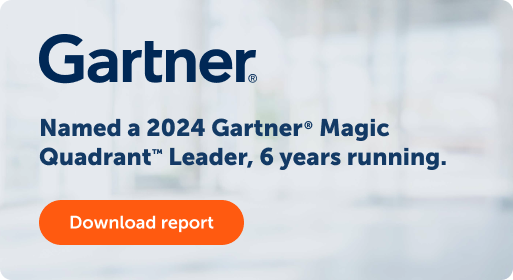- Products
Automate any process, anywhere Streamline complex, mission-critical workflows with the Agentic Process Automation System. Explore the Platform Explore the Platform
- AI System
- Build AI Agents
Automate advanced tasks with AI Agent Studio.
- Streamline workflows
Rapidly design and deploy with Automator AI.
- Process complex documents
Extract and organize data with Document Automation.
- Discover opportunities
Identify inefficiencies with Process Discovery.
- Orchestrate automations
Centralize initiatives with Automation Workspace.
- Build AI Agents
- Automation System
- Govern programs
Establish frameworks and oversight with CoE Manager.
- Automate from any app
Get AI-powered assistance with Automation Co-Pilot.
- Speed workflows with cloud
Power instant data exchange with serverless Automation Anywhere Cloud Service
- Unify systems
Connect applications and workflows with seamless integrations.
- Govern programs
- View all Products
-
- Solutions
Featured Solutions
 Google Cloud Google Cloud and Automation Anywhere empower enterprises to fast-track their AI + Automation journey. Google Cloud
Google Cloud Google Cloud and Automation Anywhere empower enterprises to fast-track their AI + Automation journey. Google Cloud Amazon Web Services Streamline workflows, reduce costs, and make automating even easier when you combine the Automation Success Platform with AWS Amazon Web Services
Amazon Web Services Streamline workflows, reduce costs, and make automating even easier when you combine the Automation Success Platform with AWS Amazon Web Services- By Industry
- By Function
- By Technology
- View all AI Solutions
-
- Resources
Get Community Edition: Start automating instantly with FREE access to full-featured automation with Cloud Community Edition.
Featured
 Named a 2024 Gartner® Magic Quadrant™ Leader for Automation. Celebrating Six Years of Recognition as a Leader. Download report Download report
Named a 2024 Gartner® Magic Quadrant™ Leader for Automation. Celebrating Six Years of Recognition as a Leader. Download report Download report - Customers
New & improved certifications
 Give yourself a competitive advantage with Automation Anywhere's industry-recognized certifications.Explore Certifications Explore Certifications
Give yourself a competitive advantage with Automation Anywhere's industry-recognized certifications.Explore Certifications Explore Certifications - Company
Get in touch with us Get help, know more, learn, ask questions, or just say Hi! Contact Us Contact Us
- Get To Know Us
- Announcements
- Society
-
Blog
Employee Spotlight: Dr. Yan Chow, Global Healthcare Leader

A passion for both technology and helping people led Yan Chow into the medical field, where the two areas eventually converged.
Chow, MD, MBA, loves software programming and might have pursued that as a career if it had been an option in the ’70s, when he attended Harvard University. “Back when I was thinking about what I wanted to do with my life, there were only a few options for people who really liked science and also wanted to help people,” he says.
Computer science didn’t exist as a major, so those who wanted to go into a computer-related field had to pursue electrical engineering to work on mainframes, which meant being holed up in a data center. That didn’t appeal to Chow, nor did it take into account his desire to work with people. So, going into medicine seemed like the best compromise.
Tech opportunities in unexpected places
Chow began his career on the traditional physician track: years of medical school and residency followed by practice in a chosen specialty. As he got into medicine, it rekindled his passion for technology. He even bought one of the first Apple IIs in the late ’70s — and, later, a Macintosh and one of the first PCs.
He enjoyed his pediatrics residency and practice but found himself drawn to startup companies. When Chow realized he lacked the needed business acumen, he went back to school to earn a Master of Business Administration degree.
While employed at Kaiser Permanente, one of the largest healthcare organizations in the U.S., Chow found opportunities to pursue other interests, such as technology innovation. He actually spent the last eight of his 32 years at Kaiser working with technology: He directed the organization’s innovation and advanced technology group, evaluated more than 2,000 healthcare startups, wrote four patents, and co-founded a venture-funded analytics startup.
Finding an industry niche
Today, Chow serves as the global healthcare industry leader and strategist at Automation Anywhere, a position that combines his two passions. He uses his deep understanding of the medical industry to help expand Robotic Process Automation (RPA) in healthcare, enabling new medical discoveries and breakthroughs.
He supports the strategic goals of Automation Anywhere by overseeing the development of sales and marketing materials to the healthcare industry. Because of his medical background, Chow is able to speak in terms healthcare professionals can relate to, point out ways automation can improve processes, and expand perspectives on what digital transformation can do for healthcare.
Applying RPA to healthcare
For years, healthcare organizations have relied on RPA to assist with back-office generic applications, such as those in finance and human resources — especially to automate manual, repetitive, rule-based processes that produce an immediate return.
Chow helps introduce healthcare organizations to the possibilities of process improvement beyond the back office. “Instead of interacting with patients, healthcare workers are required to navigate computer screens and manage data, negatively impacting patient satisfaction and outcomes,” Chow says.
Implementing RPA to handle mundane, recurring tasks frees healthcare workers to spend more time with patients and improve the patient experience by putting the human back into healthcare. And cognitive RPA, or intelligent automation, takes it to the next level — helping healthcare workers be much more productive.
Explore the benefits of RPA
in healthcare.
About Eduardo Vasconcellos
Eduardo Vasconcellos, a senior content writer, enjoys breaking down complex topics through engaging narrative.
Subscribe via Email View All Posts LinkedInGet to know the Agentic Process Automation System.

For Students & Developers
Start automating instantly with FREE access to full-featured automation with Cloud Community Edition.



